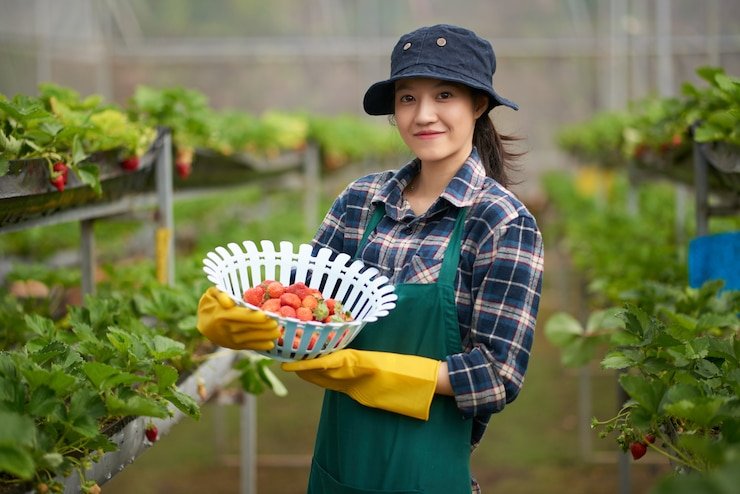In an era where environmental concerns are at the forefront, sustainable agriculture emerges as a vital solution for preserving our planet’s resources. Central to this mission are agronomists like the ingeniero agrónomo escurra clso, who play a pivotal role in environmental stewardship and innovative agricultural practices. In this blog post, we’ll explore the challenges and opportunities faced by these professionals, and how their work is shaping the future of agriculture.
Understanding the Role of an Ingeniero Agrónomo Escurra Clso
The ingeniero agrónomo escurra clso is more than just a profession; it’s a legacy rooted in agricultural tradition and innovation. This role combines the science of agriculture with the practical application of farming techniques. Historically, agronomists have been key figures in improving crop yields and promoting soil health. Today, they continue to build on this foundation, integrating modern technology and sustainable practices into their work.
Key responsibilities of an ingeniero agrónomo escurra clso include soil analysis, crop management, and the development of efficient farming systems. These professionals must possess a deep understanding of both plant biology and environmental science. Their unique skills enable them to devise solutions that enhance productivity while minimizing environmental impacts.
Challenges and Solutions
Agronomists face numerous challenges, including soil erosion, water scarcity, and the adverse effects of climate change on agriculture. These issues threaten food security and the livelihoods of farmers worldwide. Ingeniero agrónomo escurra clso professionals are on the front lines of combating these challenges, employing innovative solutions and best practices to ensure sustainable farming.
One approach involves the implementation of conservation tillage, which reduces soil disturbance and helps maintain organic matter in the soil. Water management strategies, such as drip irrigation and rainwater harvesting, are also crucial in addressing water scarcity. Additionally, crop rotation and diversification can mitigate the impacts of climate change, enhancing resilience to extreme weather events.
Technological Advancements in Sustainable Agriculture
Technology is revolutionizing agriculture, offering new tools and techniques for sustainable farming. Ingenieros agrónomos can leverage advancements like precision farming, which uses data and analytics to optimize crop production. Drones equipped with sensors provide valuable insights into crop health, enabling targeted interventions.
Biotechnology is another area where agronomists can make a significant impact. Genetically modified crops offer improved resistance to pests and diseases, reducing the need for chemical inputs. These technologies empower agronomists to implement sustainable practices that benefit both the environment and the agricultural economy.
Promoting Environmental Stewardship

Environmental sustainability is a core principle for ingeniero agrónomo escurra clso professionals. By prioritizing eco-friendly practices, they contribute to the preservation of natural ecosystems and biodiversity. Successful environmental stewardship initiatives often involve collaboration with local communities and stakeholders.
Examples of such initiatives include reforestation projects that restore habitats and protect watersheds. Agronomists also promote integrated pest management, which reduces reliance on chemical pesticides and encourages natural pest control methods. These efforts not only protect the environment but also enhance the long-term viability of agriculture.
Case Studies and Success Stories
Real-world examples illustrate the positive impact of ingenieros agrónomos in their communities and the agricultural industry. In regions affected by soil degradation, agronomists have introduced cover cropping techniques to improve soil health and fertility. These efforts have led to increased yields and improved farmer livelihoods.
In another instance, agronomists collaborated with local governments to implement sustainable irrigation systems in arid areas. By optimizing water use, these systems have enabled farmers to sustain crop production despite challenging conditions. These success stories underscore the critical role of agronomists in driving sustainable agricultural practices.
The Future of Agriculture Opportunities and Trends
The future of agriculture is shaped by emerging trends such as agroecology and regenerative farming. These approaches emphasize holistic land management, prioritizing ecological balance and soil health. Ingenieros agrónomos are well-positioned to lead the adoption of these practices, ensuring a sustainable food production system.
Advancements in artificial intelligence and machine learning also hold promise for agriculture. These technologies can enhance decision-making processes, allowing for more efficient resource allocation and improved crop management. By staying abreast of these trends, agronomists can continue to innovate and contribute to a sustainable agricultural future.
Conclusion
Ingeniero agrónomo escurra clso professionals are integral to the advancement of sustainable agriculture. Their expertise and dedication drive the development of innovative practices that balance productivity with environmental stewardship. As we move toward a more sustainable future, the role of agronomists will only become more critical.

